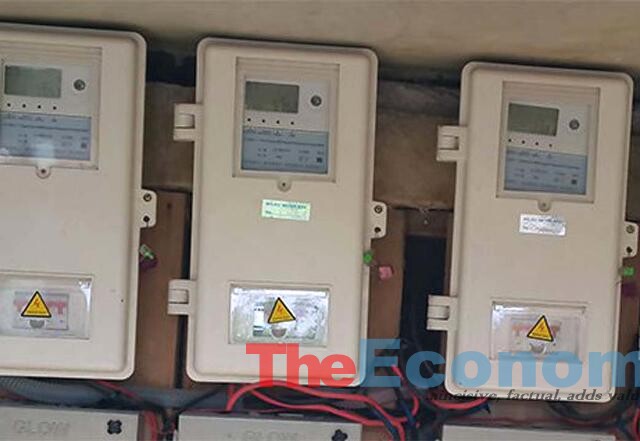The Electricity Meter Manufacturers Association of Nigeria (EMMAN) has appealed to the Federal Government to review its decision on one-year deferment of the 35 per cent import levy on electricity meters in order to promote local content in the manufacturing of pre-paid meters.
The Association said the directive to defer 35 per cent import duty on pre-paid meters was an incentive for mass importation of the meters against scaling production capacity of made in Nigeria.
It said local manufacturers were not being patronised by off-takers in the downstream of the power sector value chain, because they are not prepared to cut corners.

EMMAN said the presidential approval of tax deferment on importation of three million finished electricity meters would have negative effects on the power sector.
It says allowing such a decision to run for a year would jeopardise government’s efforts at industrialising the country.
The group stressed that the deferment might set back the development that was already on ground, while the decision would dampen the hope of the local manufacturers as well as cripple the anticipated growth in the sector.
It noted that as an in-depth manufacturer in the sector, it takes an average of three months to set up SKD (Semi Knock Down (SKD)/ Complete Knock Down (CKD) factory.
The Association, therefore, advised the government to encourage importers to set up factories, to create a value chain that would provide employment opportunities to Nigerians.
Speaking as a member of the Original Equipment Manufacturer (OEM) in the downstream, Chairman of Momas Electricity Meters Manufacturing Limited (MEMMCOL), Kola Balogun, said the 35 per cent levy is the only protection that is available to them and it is not peculiar to the sector alone.
Balogun argued that the removal is an indication that the government is more disposed to favour importation to the detriment of the local industry.
“The implication of this is that over $600million would be exported to China to import the approved three million meters. This means we would further be developing another country’s economy, and continue to increase unemployment, poverty and underdevelopment in our country.
“We are bold to emphatically say that we at MEMMCOL, have the local capability to bridge the metering gap if the right policy is put in place.
“This can be by way of financial intervention by the government whereby certain agreed percentage of the cost of meter supply would be advanced to us like the importers do with the Chinese and upon completion of installation balance payment would be made to us. We do not even mind to furnish a bank guarantee as our own commitment in such deal.”
According to him, the right thing that would have been done by the government is to identify challenges facing local manufacturers and find a way to proffer solutions.
“For instance, there is high tariff rates payable to import raw materials that are not readily available in the country, the duty payable on our raw materials ranges from five per cent per to 40 per cent plus other port charges,” he said.
He added that the major reason most of the indigenous industries closed down was because of high production costs, thereby making manufacturing unviable.
Balogun, therefore, suggested that the way forward was backward integration whereby government would categorise the key local players within and outside the sector according to their production processes by separating assemblers from manufacturers, and issuing certificates accordingly.
President, Nigeria Consumer Protection Network, Kunle Olubiyo, also stressed an urgent need for the government to establish a very strict regime of sanctions against Off-takers who deliberately refused to accept indigenous technology and made in Nigeria pre-paid meters or those assembled in Nigeria.
Olubiyo noted that metering devices in the electricity sector provide the end users, the market players, participants and regulatory agencies a spectrum of energy, accountability, efficiency conservation and of course probity.
“Electricity consumers are increasingly being made to pay for fixed cost, padded cost, over-bloated indexes of hyper-inflated cost of production of each unit of electricity measured in kilowatt hour,” Olubiyo said.
According to him, end users of electricity have been badly battered and impoverished by cartels of energy cabals fiddling with the economic soul of Nigeria, and holding the nation’s jugular down in perpetually counter-productive operations.


